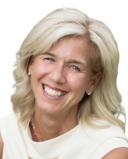Environment
Why Exercise Is Mother Nature’s Magic Pill
The natural drug that makes us healthier, happier, smarter, and younger.
Posted May 21, 2020 Reviewed by Ekua Hagan

We’ve all heard, over and over, that regular exercise keeps us healthier, happier, smarter, more creative, and turns back the chronological clock. What’s less known is the exciting and powerful scientific story, so in a nutshell, here it is.
Exercise is—quite literally—Mother Nature’s “magic pill.” Research indicates that within 5 to 10 minutes, physical activity will begin to:
- Strengthen your immune system
- Perk up your mood
- Reduce inflammation
- Promote clear thought and creativity
- Increase your metabolism (burn more calories!)
The biochemistry of exercise protects our bodies against illness and liberates our warm inner glow of emotional sunlight, providing a healthy dose of the most powerful of all vitamins—“Vitamin L” (love!) — both to ourselves and the people in our lives.
Exercise exerts positive stress - something scientists call "eustress" - into the dynamic integrated systems of our bodies and brains. This is the good kind of stress that helps us grow into healthier, stronger and better versions of ourselves.
To understand why exercise is an essential ingredient in our recipe for optimal mind-body health and immunity right now—as we face COVID-19—let’s begin with a basic description of how viral infections work.
Viruses are like burglars whose success rate skyrockets when they find unprotected houses to break into. When a human body has high levels of inflammation, a poorly functioning gastrointestinal system, and low immunity, it’s metaphorically akin to living in a house with windows and doors unlocked and left wide open 24/7.
After gaining easy access, the burglar (virus) eats our food (saps our mitochondrial energy to make copies of itself), wrecks our furniture (disrupts healthy cellular signaling and function), and makes a giant mess (creates significant inflammation). The burglar then scurries off in search of the next unprotected house.
An individual who makes daily lifestyle choices that deactivate the “immunological burglar alarm” is living in a body that is the metabolic equivalent of an unprotected house.
Now for the good news. Mild to moderate exercise is one of the most powerful weapons at our disposal to power up our immune systems and ward off viruses, bacteria, and infection. It does this by reducing inflammation, increasing antibodies that target and destroy viral cells, and by boosting the number of white blood cells—our molecular first responders. Physical activity also clears bacteria out of our lungs and airways, slows the release of stress hormones, lowers blood sugar, and boosts mitochondrial function—the generator that powers each and every cell in our brain and body.
As for mental health, exercise reduces anxiety-producing stress by virtue of the neurobiological cascade, changing how we perceive, process, and make meaning of the world around us. And remember, it is our perception of events—how we choose to interpret and label them—that drives our neurochemistry, not objective reality. This is vital given research suggesting that about 40 percent of our well-being has to do with our outlook on life. Indeed, well before the era of fMRI scanners and biomarker tests, Shakespeare said it best: “There is nothing either good or bad, but thinking makes it so.”
Here’s how it works. Shortly after we start moving our bodies, our brain begins to produce a powerful elixir of happy, mood-elevating biochemicals that make it easier to see the proverbial forest through the trees. In fact, exercise is equivalent to prescription medication in keeping depression at bay, and equally or more effective at preventing relapse.
When we go out for a run, swim laps, or get out on the court to hit a tennis ball, blood flows to our muscles and organ systems, our brains get fresh oxygen, and exercise biochemistry gains traction. The ingredients in this powerful, naturally occurring molecular cocktail include endorphins (endogenous opioids that elevate mood, alertness, strength, and decrease pain), serotonin and gamma-aminobutyric acid/GABA (combat anxiety and depression), dopamine (enhances creativity and cognitive flexibility), and BDNF (brain-derived neurotrophic factor—akin to Miracle-Gro for our neurons.)
And bonus: If we exercise with someone—walk with a friend (for now, six feet apart) or ride bikes with our child, we get to add oxytocin - "the love hormone" - into the mix. By getting active with our children and having fun doing it, we are giving the lifelong gift of Mother Nature’s “magic pill” to the rising generation: life-affirming brain chemistry that will buffer stress and help optimize their biological raw materials every day of their lives.
There’s no need to be an elite athlete to garner the myriad benefits that exercise promises and delivers. Just taking a cortisol-lowering walk out in nature—feeling the breeze on our faces, taking in the vibrant colors of the sky, trees, grass and flowers, and absorbing some Vitamin D—are known contributors to health and healing. In short, we can think of exercise as our in-house production facility for some of the most powerful mood-altering drugs we know of, ones that human brains lust for and will go to great lengths to access at the “local” pharmacy.
When we create healthy routines, stick with them through thick and thin, and lean into positive stress to overcome obstacles - these “wins” earn prime shelf space in our metaphorical trophy cases - home to the priceless "YES-I-CAN" memories embedded into our DNA that we own for life.
Our self-narratives are newly informed by an emboldened story: one of resilience, confidence, and competence. We know in our bones that what impedes us can also empower us. This sense of possibility and way of being changes the way our genes are read and expressed - in real-time - setting us up for high performance on the day ahead, and improving the quality of our sleep when the lights go out.
We walk our talk, literally and figuratively, and in doing so, we announce to ourselves, our families, our friends, and the broader community who we are and how we choose to show up in our world.
A version of this article was first published by Turnaround for Children on the 180 Blog.
References




